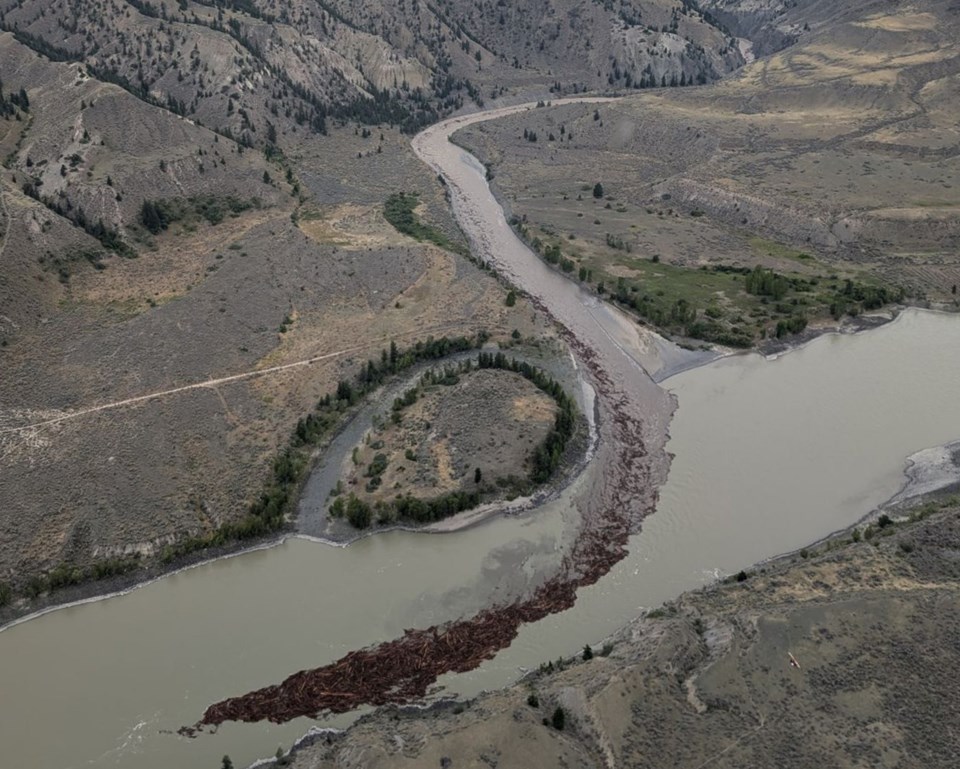WILLIAMS LAKE, B.C. — The Tsilhqot'in National Government says river conditions are "slowly improving" after the massive landslide that temporarily dammed the Chilcotin River last month, but salmon spawning activity is being delayed.
An update from the Tsilhqot'in emergency salmon task force says debris and sediment from the slide are "dramatically" impacting sockeye and Chinook salmon spawning runs.
The task force's latest situation report says observations from a helicopter show the river flow is "evening out," and murky conditions are getting better, though the flow is still much higher than normal.
The report says the improving conditions are only part of a "complex puzzle," and fish likely still lack an "unimpeded" path at the slide site.
It says fish monitoring equipment has only detected 31 Chinook and 16 sockeye passing through the slide site at a time when thousands of sockeye should be moving through.
The task force says some fish populations made it through to their spawning grounds before the slide, and others make their runs later in the year.
It says it's hoped fish make it past the slide zone without intervention "unless absolutely necessary."
This report by The Canadian Press was first published Aug. 20, 2024
The Canadian Press



